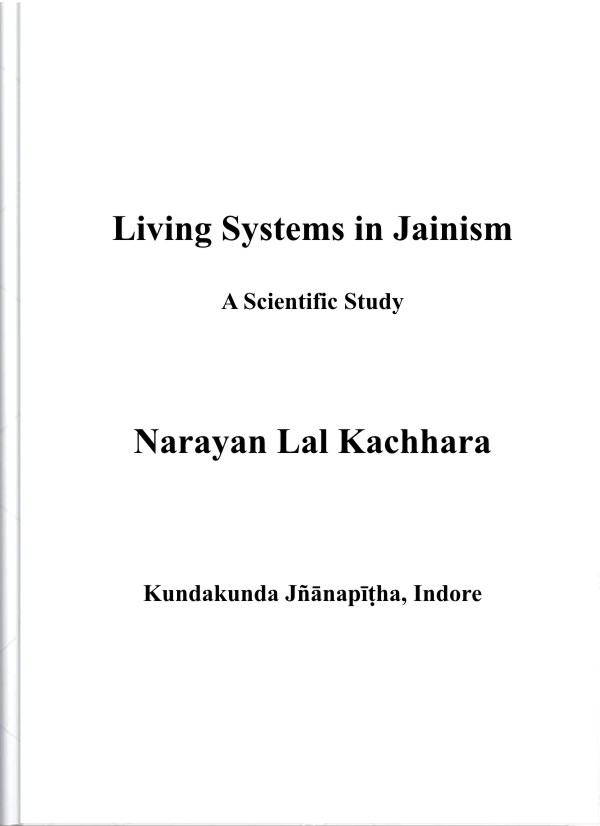Jain philosophy describes eight main properties or attributes of the soul. Accordingly, there are eight main types of karma that obscure these natural properties.
- Intelligence (or the power of cognition)-obscuring (Jnanavaraniya) karma. A pure soul has infinite intelligence; karma obscures and limits the pure and perfect intelligence of the soul. Intelligence is conceptual consciousness and is determinate.
- Awareness (or perception)-obscuring (Darshanavaraniya) karma. This karma restricts the soul's abilities of self-awareness and perception. Awareness is non-conceptual consciousness and is indeterminate.
- Feeling-producing (Vedaniya) karma. A pure soul enjoys infinite bliss. This karma obscures this innate property of bliss and produces feelings of pleasure and pain, depending on the situation. It may be mentioned that bliss is not the same as pleasure, but rather a spiritual ecstasy of the highest order. Feeling-producing karma is supported in its functioning by deluding karma.
- Deluding (Mohaniya) karma. A pure soul experiences the absolute truth, but deluding karma hinders the perception of the truth. This happens in two ways: first, perception and comprehension are obscured so that the truth is not apparent; and second, one's equanimity of conduct is obstructed. The very existence of the soul is doubted or forgotten, and all acts and efforts are directed towards the body.
- Age-determining (Ayusya) karma. A pure soul is ageless: it is never embodied. Age-determining karma determines the soul's embodied lifespan in a particular realm, viz., the animal, human, infernal or heavenly modes.
- Form-producing or Morphological (Naama) karma. This karma decides the form of the soul's existence in a particular realm and the structure, outward appearance, etc. of the being. This concept is very general and pertains to all kinds of forms, including all animals, plants, humans, infernal beings and heavenly beings.
- Status (quality)-determining (Gotra) karma. This karma refers to the quality of actions (conduct) in a given mode, including the effects of the (genetic?) inheritancefrom one's parents.
- Vitality (or Will Power)-obstructing (Antaraya) karma. This karma produces an obstruction in the expression of the vitality of the soul and causes hindrances in the action of the soul. The form-producing, status-determining and feeling-producing karmas are the auxiliary causes that support the action of this karma.
The karmas are divided into two groups, ghatin and aghatin, depending on the influence they have over the soul. The former destroys the basic nature of the soul; the latter does not. The aghatin karmas determine the biological structure of the organism and its operation; the ghatin karmas determine its psychical performance. The two groups are:
- Psychical (Ghatin) Karma. These karmas affect the psyche and inhibit or destroy the fundamental nature of the soul. The intelligence-obscuring, awareness-obscuring, deluding and vitality-obstructing karmas belong to this group. These karmas limit the manifestation of the psychical powers of the soul and are the cause of our imperfections.
- Biological and Physiological (Aghatin) Karma. These karmas concern the physical body and do not cause any harm to the fundamental character of the soul. This group includes feeling-producing karma, morphological karma, status-determining karma and age-determining karma. These karmas keep the soul embodied but allow the manifestation of the natural psychical powers of the soul when the psychical karmas have been eliminated.
The psychical karmas may obscure the nature of the soul either fully or partially. However, it may be mentioned that the fundamental quality of the soul is never fully obscured. If that were the case, the soul would lose its basic character and become as good as an inanimate object. Even the densest and darkest cloud cannot completely obscure the sun; in the same way, any amount of karma cannot obscure the total abilities and powers of the soul.
The effects of psychical karmas can be briefly summarized as follows:
- Generate the qualities of attachment and aversion like anger, ego, illusion and greed
- Generate desires, drives, instincts and needs like hunger, sleep, defense (fear), and mating (sex)
- Determine the level of intelligence, knowledge, wisdom, perception, willpower, and determination
- Determine faith, philosophical and spiritual qualities
- Determine personal and social conduct and behavior
Biological karmas, on the other hand, have a wide variety of functions, ranging from the type of realm into which the soul is born to the minutest details of the body. These karmas can produce all possible types of bodies of all species, all possible variations in the bodies of a given species, all features like outer appearance, deficiencies, voice etc., all autonomic and physiological functions, and all structural qualities of the body. Feeling-producing karma may operate at either the mental or bodily level to produce mental- or body-oriented pleasure or pain. The age-determining karmas have a temporal character and may be connected to the prana body.
The function of biological karma can be explained with the following example. Suppose that age-determining karma decides that the next birth of a jiva shall be as an animal with a particular lifespan. Form-producing karma will determine the type of species in the animal kingdom and the shape, size, appearance, structural details, colour, smell, voice, development, etc. of the body. If the next birth is as a dog, then the breed, exact shape and size, look, colour, overall appearance, etc. are determined by form-producing karma. Whether the dog will live in the forest, in the street, or as a pet will be determined by its status-determining karma. Irrespective of the location, the experience of pain and pleasure shall be decided by its feeling-producing karma. Please note that age-determining karma is bound only once in each lifetime for only one birth, whereas the other three karmas bond for several lives. Therefore, the type of species, the status, and the experience of pain and pleasure in the next birth depend not only on what we do in this life but also on what we have done in previous lives.
 Dr. N.L. Kachhara
Dr. N.L. Kachhara
